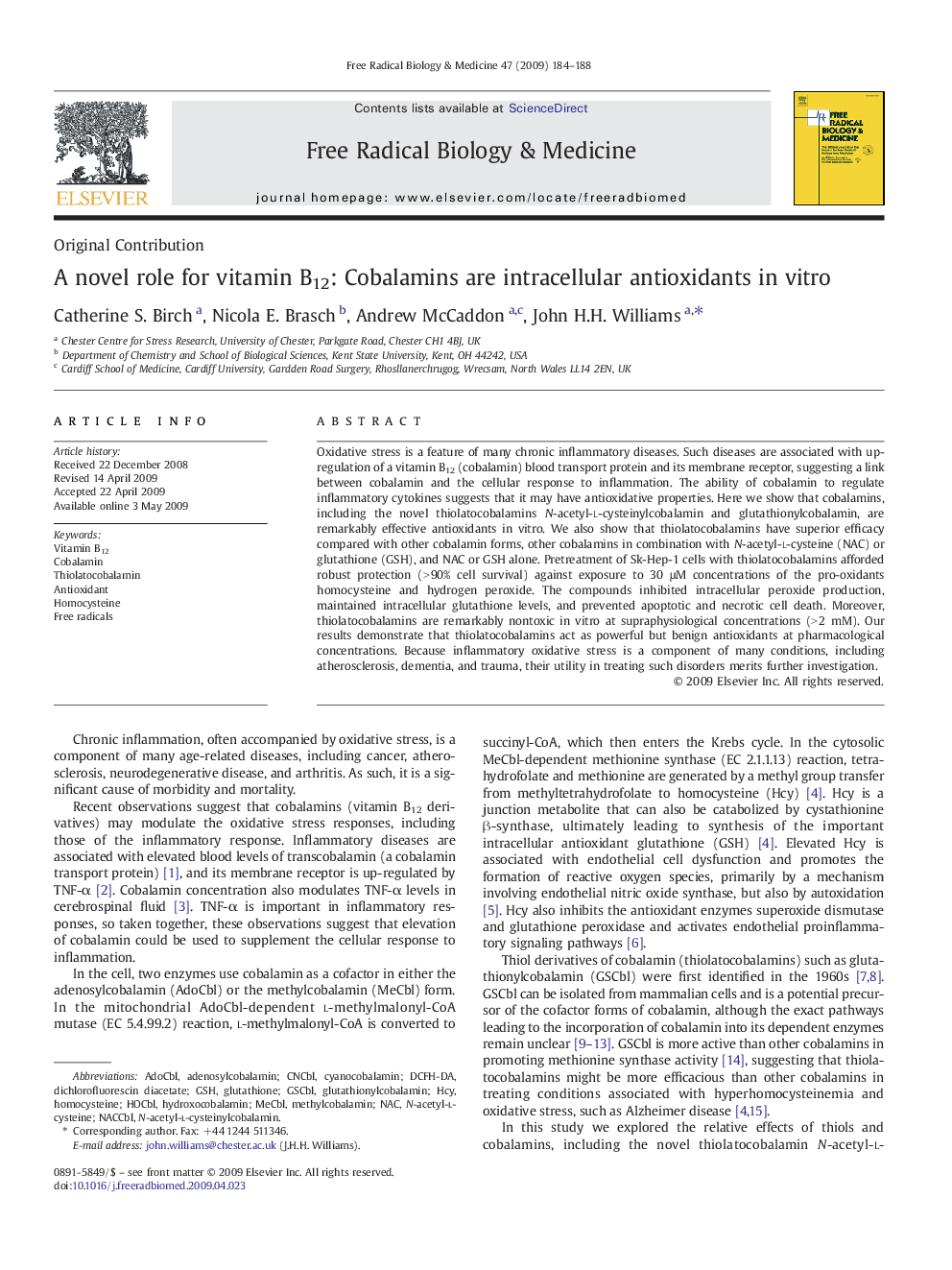| Article ID | Journal | Published Year | Pages | File Type |
|---|---|---|---|---|
| 1910030 | Free Radical Biology and Medicine | 2009 | 5 Pages |
Oxidative stress is a feature of many chronic inflammatory diseases. Such diseases are associated with up-regulation of a vitamin B12 (cobalamin) blood transport protein and its membrane receptor, suggesting a link between cobalamin and the cellular response to inflammation. The ability of cobalamin to regulate inflammatory cytokines suggests that it may have antioxidative properties. Here we show that cobalamins, including the novel thiolatocobalamins N-acetyl-l-cysteinylcobalamin and glutathionylcobalamin, are remarkably effective antioxidants in vitro. We also show that thiolatocobalamins have superior efficacy compared with other cobalamin forms, other cobalamins in combination with N-acetyl-l-cysteine (NAC) or glutathione (GSH), and NAC or GSH alone. Pretreatment of Sk-Hep-1 cells with thiolatocobalamins afforded robust protection (> 90% cell survival) against exposure to 30 μM concentrations of the pro-oxidants homocysteine and hydrogen peroxide. The compounds inhibited intracellular peroxide production, maintained intracellular glutathione levels, and prevented apoptotic and necrotic cell death. Moreover, thiolatocobalamins are remarkably nontoxic in vitro at supraphysiological concentrations (> 2 mM). Our results demonstrate that thiolatocobalamins act as powerful but benign antioxidants at pharmacological concentrations. Because inflammatory oxidative stress is a component of many conditions, including atherosclerosis, dementia, and trauma, their utility in treating such disorders merits further investigation.
